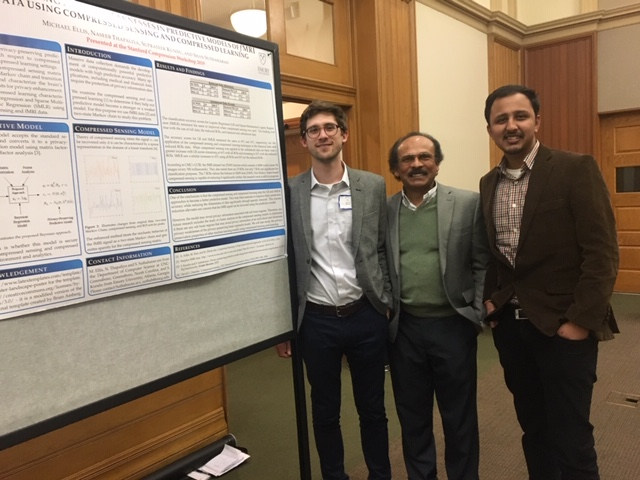News & Events
Dr. Suthaharan and Students Present at Stanford Workshop

In February, Dr. Suthaharan and two of his graduate advisees, Michael Ellis and Naseeb Thapaliya, attended the 2019 Stanford Compression Workshop in Stanford, California to present a poster on their research entitled “Illuminating Privacy Weaknesses in Predictive Models of fMRI Data Using Compressed Sensing and Compressed Learning.” Dr. Suthaharan has been advising Michael and Naseeb since the Fall 2018 semester and said that the workshop is an amazing experience for graduate students to present their work alongside Ph.D. students, researchers, and industry professionals. They were also able to attend talks by experts from Google and Netflix, as well as researchers from prestigious universities.
Functional magnetic resonance imaging (fMRI) is a growing field of medical technology with which doctors can examine blood flow in the brain to detect areas of activity, the uses of which range from assessing risks of invasive treatment to detecting the onset of Alzheimer’s disease. Dr. Suthaharan and his students’ research focused on compressed sensing and compressed learning, hoping to ensure an optimized trade-off between accuracy and privacy after compressed sensing has been applied. Safeguarding against privacy weaknesses with fMRI data is important because as Dr. Suthaharan said, “Personal data could quickly be exploited […] if you have a large enough data set and understand how each person thinks based off what regions of the brain react to a specific stimulus,” and so fMRI data should be secured in the same way that personal medical and financial data is.
The poster is currently on display in the Petty building outside Lab 214.





